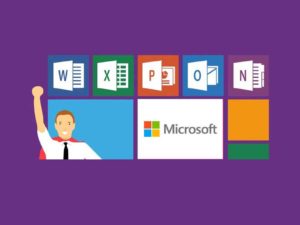Under the patronage of HRH Shaikh Salman Bin Hamad Al Khalifa, the Crown Prince and Prime Minister of the Kingdom of Bahrain, and guidance of H.E. Shaikh Jameel Bin Mohammed Ali Hamaidan, the Minister for Labor and Social Development jointly with Tamkeen (Labor Fund) has created Al Shamil Project which is a massive effort towards creation of better employment opportunities for Bahraini citizens. The Project aims to create various openings for registered job seekers with the Ministry mainly focusing on the high school pass outs or fresh graduates in the Kingdom, to aid them by training and providing them enhanced employment prospects.
Aptech Bahrain has joined this project, firstly training registered job seekers on their chosen field and then providing a golden opportunity of an onsite training experience using their esteemed clientele, thereby empowering them with training and experienced skills required in the job market today. Al Shamil project has training programs which are fully funded by the government that the job seekers can choose to expedite and contribute to their careers. During the training, Aptech Bahrain takes a step further, by inviting experts in the job market so that the job seekers are trained on their personality development and intelligence skills required in the job market today. We also take them to a field trip to various locations of our clients giving them the actual feel of a working environment. All these efforts together build up their confidence and zeal to work and upgrade themselves in their future endeavors.
PHASES OF AL SHAMIL PROJECT
- Register Job Seekers in MOL/Tamkeen’s Portal with chosen course
- Train Job Seekers on the selected program.
- After course completion, job seekers will be required to get OJT for 1 month, which is mandatory for the job seekers.
- After the training and OTJ, if client is happy with job seekers performance, they can give them an employment offer letter in the related field (Optional).




















